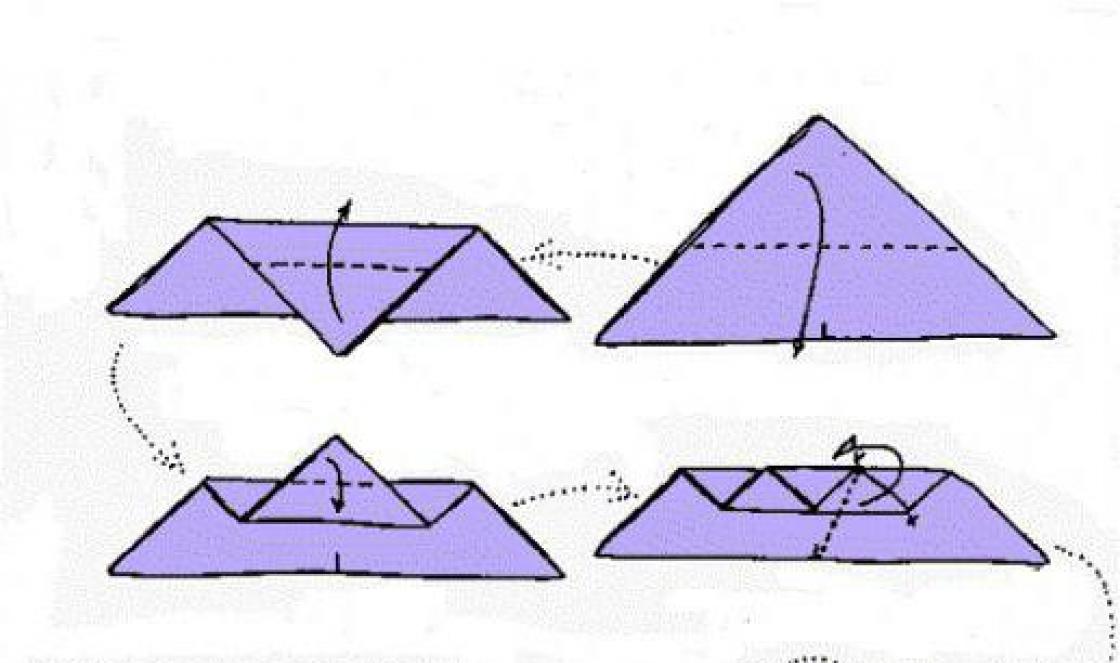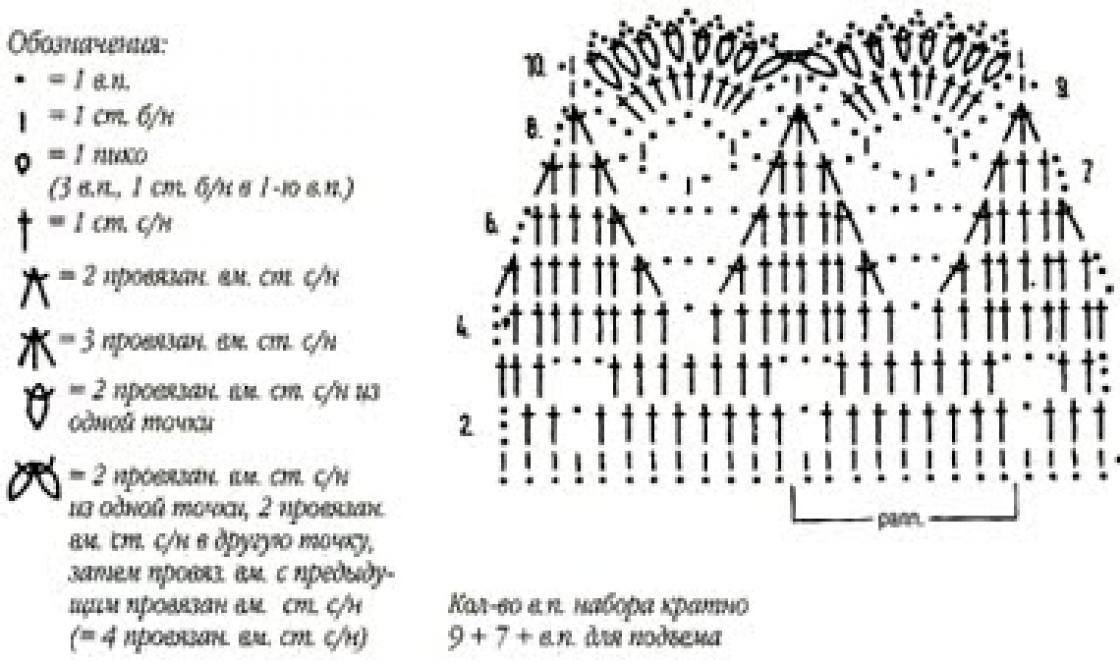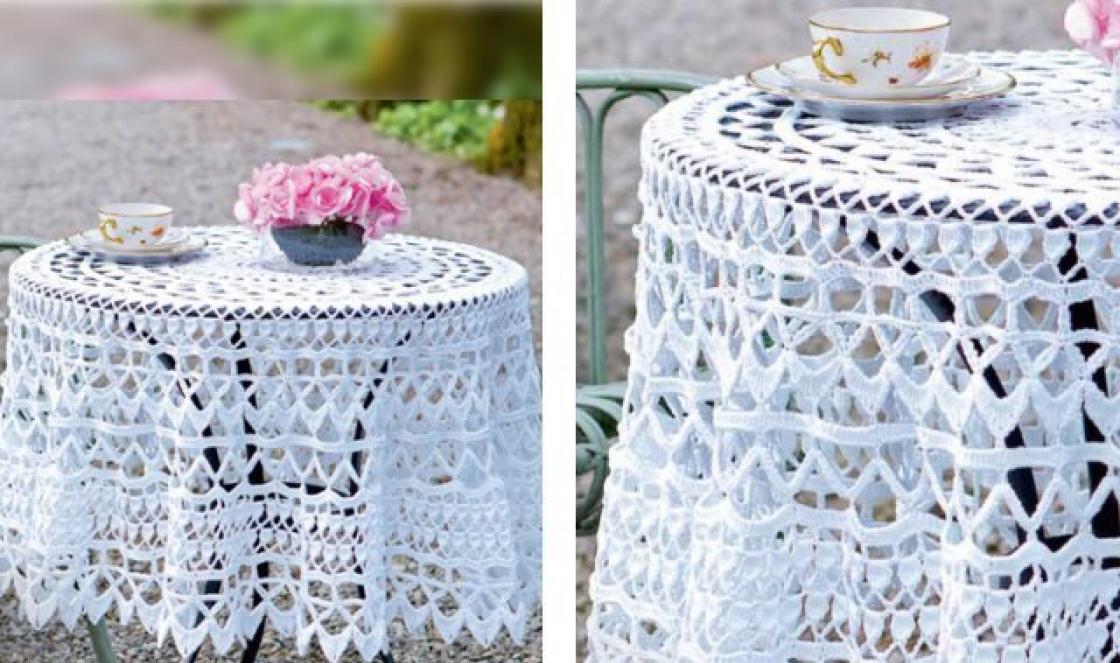Carnival, also called Cheese or Maslenitsa week, is celebrated by Orthodox believers during the 8th week before Easter, from Monday to Sunday. The week-long celebration of Maslenitsa is preceded by the most important and strict fast in the Orthodox Church - Great Lent 2019. The date on which Maslenitsa week begins is not constant, as it depends on the date of Easter. In 2019, Easter is celebrated on April 28, and, accordingly, Maslenitsa will begin on March 4, 2019, and end on March 10, 2019.That is, Maslenitsa week in 2019:*Starts: March 4, 2019 (Mon)*Ends March 10, 2019 (Sun) The final day of Maslenitsa (in 2019 - March 10, 2019) is called Forgiveness Sunday and is the culmination of a week-long celebration. On this day they ask each other for forgiveness, and at sunset they burn an effigy, which is the embodiment of frosty time.
When is Maslenitsa celebrated in 2019?
Maslenitsa in 2019 will be traditionally celebrated 8 weeks before Easter - March 4. It will end on March 10. Throughout the week, Russians will feast on pancakes, participate in folk festivals, dances, and, according to ancient custom, burn an effigy.
The holiday is pagan and is associated with the glorification of Yarila, the sun god. Now they sacrifice a stuffed animal to him, but previously it was people. The tradition of sacrificing a person survived until the 17th century, but when Christianity was adopted, the Church sanctified the holiday, introduced new ideas, and prohibited cruelty.
Cool Happy New Year 2019 greetings: best wishes in verse, bright and colorful congratulations on pigs
Every Maslenitsa day is special:
Monday - "Meeting"
Daughters-in-law go to visit their parents in the morning, but in the evening they are picked up by their father-in-law and mother-in-law. On this day, they definitely bake pancakes and make a stuffed animal, dress it up, put it on a stake, put it on a sleigh and take it around the whole village. In the evening, the scarecrow is left on the top of the mountain, from which young people go sledding.
Tuesday - "Play"
Guys and girls visit each other, eat pancakes. Then they go sledding. The guys get married and get married on Krasnaya Gorka.
Wednesday - "Gourmand"
Mothers-in-law prepare pancakes and invite their sons-in-law to visit.
Thursday - "Wide Revelry"
The real fun begins, folk festivities, people ride on a sleigh drawn by three horses, sing, and have fist fights. It is customary to create fortresses out of snow, then “storm” them. On this day you can get rid of all negativity and have a feast in the evening.
Friday - "Mother-in-law's Evening"
The wife's mother comes to visit for pancakes prepared by her daughter. At the same time, the mother-in-law is accompanied by her friends.
Saturday - "Sister-in-Law's Gatherings"
Daughters-in-law invite sisters-in-law and other relatives of the husband to visit.
Sunday - “Seeing Off”
You need to ask forgiveness from your family, loved ones, and anyone you have ever offended. On the last day of Maslenitsa, it is customary to burn an effigy.
What date is Forgiveness Sunday in 2019?
Forgiveness Sunday is the last day of Maslenitsa week: in 2019 it is March 10. This is a very touching, emotional, sincere day when you need to ask for forgiveness from all your loved ones, forgive them and all your offenders.
Signs on New Year— December 31, 2019 — Signs will help you find luck and wealth in 2019. Taking out trash on December 31 and January 1 is prohibited!
The celebration of Forgiveness Sunday on the eve of Lent began in Egypt. Before fasting, the monks went into the desert for 40 days, lived as hermits, did not eat or drink. Before retiring for long days, they said goodbye to each other and asked for forgiveness for any offenses. The monks understood that not everyone would return from the desert, so they introduced this tradition of farewell and forgiveness. Since then, it has been customary to observe it on the last day of Maslenitsa.
On Forgiveness Sunday, you need to visit your relatives’ graves, clean them up, bring gifts, and ask them for forgiveness. On the morning of this day, Orthodox Christians go to churches, confess, repent of their sins, and receive communion. The youngest family members are the first to ask for forgiveness from the elders.
The winter holiday Maslenitsa annually blossoms with colorful fairs, rings the bells of horse carts and smells of freshly baked pancakes. Some consider it deeply Orthodox tradition, others smile slyly, remembering the ancient Slavic holiday - the March Solar Maslenitsa.
Many of the traditions typical of the Slavic pagan holiday are also found in Orthodox Maslenitsa. This includes an unbridled cheerful revelry for a week, and ruddy pancakes with butter, and the burning of an effigy... Common to both holidays is also the tradition of asking forgiveness from all your loved ones on the last day of Maslenitsa. One way or another, this holiday is the most fun event on the eve of spring. And who cares what its background is - the main thing is that it is complete positive emotions and delicious treats.
Maslenitsa – when is it celebrated?
Among the ancient Slavs, Maslenitsa festivities took place in the week preceding the spring equinox. And, as you know, it falls on March 20 or 21. At the end of winter, people had fun, saying goodbye to everything old and welcoming a new period - sunny Summer. At the end of the week of fun, a symbolic ritual of burning the effigy took place. women's dress- image of Maslenitsa. Its ashes served as fertilizer for the spring awakening after winter. Maslenitsa of that time glorified the Sun and fertility and was always held in March.
Tied to the Orthodox calendar, Maslenitsa is celebrated during the week before Lent, i.e. seven weeks before. Since Easter falls on different dates of the month every year, the date of Maslenitsa is also constantly changing.
The holiday week can be calculated using the lunar calendar: see when the first day after spring equinox full moon. The next Sunday following this full moon will be Easter. Count back a full 7 weeks and find out when to celebrate Maslenitsa. It's easier than it seems.
Maslenitsa in 2012 - the date of the holiday
The most inquisitive ones have probably already calculated the date of Maslenitsa in 2012 using lunar calendar. For those who like quick solutions without unnecessary hassle, we inform you exact dates: The holiday will last from February 20th to 26th.
Are you ready to celebrate Maslenitsa in 2012 on a grand scale - with songs, dances and delicious food? Then get ready: get a colorful scarf for your shoulders, make “beads” for yourself and your children - a bunch of bagels, and learn a couple of ditties about the beautiful spring. Let February 20 – 26 be remembered by you for festive festivities, snow fights and a lot of fun!
Maslenitsa in 2012 – what to cook?
Undoubtedly, the main treat during Maslenitsa week should be pancakes. But eating the same thing for a whole week is almost torture. However, if you use new pancake recipes each time, you won’t get tired of the traditional Maslenitsa dish.
You can cook, bake or please everyone. For beginners in this business, we recommend that you learn about the basic principles of cooking and act strictly in accordance with the recipes.
Do you want your Maslenitsa in 2012 to be particularly elegant? Prepare or serve the most delicate pancakes with whipped cream. As a filling you can use red caviar, pates, fresh frozen berries (blueberries, cherries, etc.) or honey with nuts.
In addition to pancakes, it is customary to cook fish and cheese on Maslenitsa. If you follow church canons, then you should only avoid meat. Therefore, feel free to cook any pancakes to your taste!
Maslenitsa 2012 – find out the future
In 2012, or any other year, be sure to arrange fortune telling for Maslenitsa. Go out into the yard and throw the pancake up. If you manage to catch him, then your wish will come true. If the pancake falls next to you, face up, this means good luck in money; if it falls on the wrong side, it means imminent sadness. In general, it’s better to eat pancakes and just believe in the best.
Message quote Maslenitsa 2013 - When is Maslenitsa in 2013, what date - Maslenitsa pictures - Congratulations on Maslenitsa cards
When is Maslenitsa in 2013, what date is Maslenitsa 2013, funny Maslenitsa greeting cards
What date is Maslenitsa in 2013?
When does Maslenitsa start in 2013?
Maslenitsa 2013 celebrated between March 11 and March 17.
This week is called Maslenitsa week or Cheese week.
The start date of Maslenitsa changes every year depending on when Lent begins.
Carnival(akin to “Fat Tuesday” in other countries) got its name from the fact that during this period of time - the last week before Lent - eating butter, dairy products and fish is allowed.
When is Forgiveness Sunday in 2013?
History of Maslenitsa
Carnival- a folk holiday cycle preserved among the Slavs since pagan times.
Initially, the meaning of Maslenitsa celebrations goes back to the pagan customs of our distant ancestors - farewell to winter and joyful anticipation of the approaching spring and warmth.
The seven-day fun is dedicated to seeing off the cold winter and ends with a symbolic welcome of spring. Half of the random passers-by will say that this pagan holiday, the other is that he is Orthodox. They are all right. With the advent of Christianity, only the day of celebration changed, which was determined depending on the beginning of Lent.
Other names for the Maslenitsa holiday
Komoeditsa, Komoeditsa, Maslenaya, Maslenaya, Shrovetide, Maslenitsa week, World holiday, Pancake house, Pancake house, Pancake week, Pancake eater, Gluttonous week, Obedukha, Wide Maslenitsa, Honest, Cheerful, Kisser, Crooked Neck, Crooked Week, Boyarynya Maslenitsa, Milk Week, Thrush, Butter Dish, Butter Eater, Butter Kolyada, Cheese Week.
In Rus', the names Myasopust, Meat Empty and Cheese Week are used only in the Saints as a “church” name.
Maslenitsa history in Orthodoxy
In the calendar of the Russian Orthodox Church, this period is called Cheese Week - the week (week) following Motley Week. In its continuation, the Charter prescribes abstaining from meat (but not other fasting foods), and the usual fast on Wednesday and Friday is canceled; There is no liturgy celebrated on Wednesday and Friday of Cheese Week.
For Orthodox Christians, Cheese Week becomes a time of preparation for Lent, both in the sense of bodily food (meat should no longer be eaten) and in the spiritual sense - reconciliation with neighbors, forgiveness of offenses. Preparing for Lent is time that needs to be devoted to good communication with neighbors, family, friends, and charity. At the same time, Wednesday and Friday on Cheese Week are not fasting.
Maslenitsa - traditions and customs
 The main traditional attributes of the folk celebration of Maslenitsa in Russia:
The main traditional attributes of the folk celebration of Maslenitsa in Russia:
- pancakes,
- scarecrow of Maslenitsa,
- fun,
- sledding,
- folk festivals.
According to beliefs, those who do not celebrate Maslenitsa with dignity will live unhappy and frozen all year.
Pancakes for Maslenitsa
The traditional dish for Maslenitsa is pancakes, symbolizing the sun in ancient beliefs. Pancakes for Maslenitsa- part of the ritual, a piece of the Sun summoned to the cold earth.
The size of the pancakes ranged from large (the entire frying pan) to small (the size of a tea saucer), and pancake recipes for Maslenitsa can be varied and depend only on the imagination of the hospitable hostess...
Maslenitsa week - Maslenitsa by day of the week
The whole week is divided into two periods: Narrow Maslenitsa And Wide Maslenitsa.
Narrow Maslenitsa- first three days: Monday, Tuesday and Wednesday.
Wide Maslenitsa- these are the last four days: Thursday, Friday, Saturday and Sunday.
Among the people, each day of Maslenitsa has its own name and each day of the week is given a special meaning:
- Monday - Meeting of Maslenitsa - the beginning of Narrow Maslenitsa
- Tuesday - Flirting
- Wednesday (Small Wednesday) - Gourmets
- Thursday - Wide revelry - the beginning of Broad Maslenitsa
- Friday - Mother-in-law's evening.
- Saturday - Sister-in-law's gatherings
- Sunday ( Forgiveness Sunday Kisser, Forgiveness Day, Confession, Masnitsa) - Farewell to winter.
Sunday is the culmination of everything Maslenitsa week and the final farewell to winter.
On the last day of Maslenitsa Forgiveness Sunday They ask their relatives, loved ones, friends and acquaintances for forgiveness for all the troubles and insults caused during the year, thus freeing themselves from sins before Lent. In response they say: “God will forgive.” Also on this day it is customary to thank each other.
At the end of the holiday, the symbolic effigy of Maslenitsa was solemnly burned on a bonfire, and the ashes were scattered across the fields so that the year would be fruitful.
wrong:
Forgiveness Sunday 2013
Maslenitsa
Right:
Forgiveness Sunday 2013
Carnival
All materials are taken from open sources. Copyright for publications belongs to their authors. When copying articles, an active link to the site is required. http://supersolnishco.net
Series of messages " ":
Part 1 - Maslenitsa 2013 - When is Maslenitsa in 2013, what date - Maslenitsa pictures - Congratulations on Maslenitsa cards
Maslenitsa - ancient folk holiday, celebrated by Slavic peoples since pagan times. This is a fun holiday with folk festivities, with certain ceremonies, with traditions and rituals, with baking and eating pancakes. A celebration of seeing off the boring, cold winter. Maslenitsa in 2012 will be celebrated from February 20 to 26.
It was believed that on Maslenitsa a person should have a lot of fun, eat a good and satisfying meal, and then he would have a satisfying and lucky whole year. On Maslenitsa, the most important dish is round, rosy and hot as the sun pancakes. Pancakes were baked all week and eaten at large quantities. The pancake symbolized the sun, and the burning of the straw effigy symbolized the end of winter.
We arranged for Maslenitsa folk festivals, entertainment. People rode down ice slides and sleds. They danced in circles and sang songs of praise. Various competitions and fist fights were organized. Maslenitsa was celebrated everywhere in cities and villages. The procedure for holding it in different provinces varied slightly, but the essence of the celebration of Maslenitsa was the same, to spend the boring, evil winter and meet the long-awaited spring.
Orthodox Cheese Week
According to Orthodox concepts, this holiday is called Cheese Week and precedes Lent. During Cheese Week, the church advises making peace with family, friends, acquaintances, asking each other for forgiveness and forgiving all offenses. Parishioners are preparing for Lent. Starting on Monday of Maslenitsa week, Orthodox Christians do not eat meat, but other fast food is allowed. Cheese Week ends with Forgiveness Sunday.
Maslenitsa week

Monday. On Monday, they made a Maslenitsa effigy from straw, dressed it up in women's clothing, impaled, and carried on sleighs through the streets. The kids called for Maslenitsa in the morning - they built snow slides or poured ice slides. The women started baking pancakes in the morning. In some areas, the first pancake was given to the poor to remember the dead. In others, the first pancake was carried to the trees and hung on the branches; it was believed that the souls of ancestors lived in the treetops; the first pancake was also intended for deceased parents; it was placed in a certain place, offering the dead to taste it. Children called for Maslenitsa in the morning - they filled the ice slides. The first day of Maslenitsa is called Meeting.
Tuesday. According to tradition, on Tuesday morning the effigy of Maslenitsa was installed in the center of the place where the festivities were held. Dressed up young boys and girls danced around the scarecrow, rode down the mountains or swung on a swing. They ate pancakes and looked closely at each other, looking for brides. We went to visit, had gatherings with songs - this day is called Flirting.
Wednesday. The mother-in-law is preparing pancakes for her son-in-law. He invites him and other guests to his home, treats his son-in-law, and treats him. Each family set a generous table, ate as much as they could, and went to visit. Trade stalls with various delicacies, sbiten, painted honey gingerbread, and nuts appeared in the squares. This day is called - Gourmets.
Thursday. From Thursday, any work was prohibited. The holiday is in full swing. There were mass celebrations with sleigh rides and fist fights. They built snow towns, which were destroyed on Saturday, as if to show that the end had come to snow and ice.
Everywhere there were rich fairs with all kinds of delicacies, gingerbread, nuts, and tea drinking from samovars with bagels and pancakes. Children whistled into clay whistles, imitating the singing of birds - inviting spring. Set fire to cart wheels were launched from the ravines. Mummers walked around the squares and led a live trained bear on a chain, putting on performances. Or a person dressed up as a bear. Children also dressed up as animals, walked around the yards, and caroled. Thursday is called - Take a walk.
Friday. The mother-in-law goes to visit her son-in-law with her other relatives. Her daughter bakes pancakes, and the son-in-law must treat the mother-in-law and show his respect to the mother-in-law and her family. The day is called - Mother-in-law's parties.
Saturday. On Saturday, the husband's sisters and other relatives of the husband came to the daughter-in-law's house, and she treated them to pancakes and gave her sister-in-law a gift.
On Saturday, the snowy town was captured; it was believed that the town was the last shelter of winter. The players were divided into two camps, some defended the town, others attacked and destroyed. At the end of the game, the town was destroyed. Saturday - Sister-in-law's get-togethers.
Sunday. The last day - seeing off Maslenitsa is the most fun. People visited and treated each other. If they were in a quarrel, they were reconciled, everyone asked each other for forgiveness for the insults they had caused to others during the year, and in response they answered: “God will forgive.” We went to church, asked for “remission of sins,” prayed for the dead, and visited the graves of relatives. On the evening of Forgiveness Sunday, it was customary to remember deceased relatives.
On this day, women baked larks from dough for their children. Children climbed onto the roofs of houses and raised larks to the sky to invite warm spring.
On Sunday evening, the straw effigy of Maslenitsa was taken to the outskirts and burned. The ashes from the scarecrow were scattered across the fields so that there would be a rich harvest. The last day of Maslenitsa is called Forgiveness Sunday.
Maslenitsa is still celebrated today. Of course, not on such a large scale, but we bake pancakes, and our sons-in-law also drop by for pancakes. And in every city and village, folk festivals are held with fairs, performances, and the ritual of burning the Maslenitsa effigy. We ask each other for forgiveness Forgiveness Sunday. We rejoice in seeing off the fierce winter and look forward to the gentle spring.
We wish you a fun celebration of Maslenitsa!
Church Maslenitsa begins 8 weeks before Easter and lasts 1 week from Monday to Sunday (Forgiveness Sunday).
National Maslenitsa begins a day earlier - on Sunday for the so-called “meat ritual”, when Orthodox Christians are allowed to eat meat for the last time (i.e. it lasts 8 days).
In 2012, Maslenitsa will be held from Monday 20 February to Sunday 26 February.
After Maslenitsa they begin 7 weeks of Lent , lasting until Sunday of the holiday Easter(or rather, Lent lasts 7 weeks without one day, from Clean Monday to Easter Saturday inclusive, until the first evening star).
According to the definition of the First Ecumenical Council, Easter is always and everywhere celebrated between March 22 and April 25, old style (between April 4 and May 8, new style)- on the first Sunday after the Easter full moon (the first full moon after the spring equinox), or a week later, so that the Christian Easter takes place after the Jewish one (but does not coincide with the Jewish one).
Dates (according to the new art.) Orthodox and Catholic Easter for 2006-2049:
| Year | Orthodox Easter |
Catholic Easter |
| 2006 | 23 Apr | 16 Apr |
| 2007 | 08 Apr | |
| 2008 | 27 Apr | 23 Mar |
| 2009 | 19 Apr | 12 Apr |
| 2010 | 04 Apr | |
| 2011 | 24 Apr | |
| 2012 | 15 Apr | 08 Apr |
| 2013 | May 05 | 31 Mar |
| 2014 | 20 Apr | |
| 2015 | 12 Apr | 05 Apr |
| 2016 | May 01 | 27 Mar |
| 2017 | 16 Apr | |
| 2018 | 08 Apr | 01 Apr |
| 2019 | 28 Apr | 21 Apr |
| 2020 | 19 Apr | 12 Apr |
| 2021 | May 02 | 04 Apr |
| 2022 | 24 Apr | 17 Apr |
| 2023 | 16 Apr | 09 Apr |
| 2024 | May 05 | 31 Mar |
| 2025 | 20 Apr | |
| 2026 | 12 Apr | 05 Apr |
| 2027 | May 02 | 28 Mar |
| 2028 | 16 Apr | |
| 2029 | 08 Apr | 01 Apr |
| 2030 | 28 Apr | 21 Apr |
| 2031 | 13 Apr | |
| 2032 | May 02 | 28 Mar |
| 2033 | 24 Apr | 17 Apr |
| 2034 | 09 Apr | |
| 2035 | 29 Apr | 25 Mar |
| 2036 | 20 Apr | 13 Apr |
| 2037 | 05 Apr | |
| 2038 | 25 Apr | |
| 2039 | 17 Apr | 10 Apr |
| 2040 | May 06 | 01 Apr |
| 2041 | 21 Apr | |
| 2042 | 13 Apr | 06 Apr |
| 2043 | May 03 | 29 Mar |
| 2044 | 24 Apr | 17 Apr |
| 2045 | 09 Apr | |
| 2046 | 29 Apr | 25 Mar |
| 2047 | 21 Apr | 14 Apr |
| 2048 | 05 Apr | |
| 2049 | 25 Apr | 18 Apr |
Easter day any year
(the date will be obtained according to the new style) can be determined by the formula:
(4 + c + d) April or, if the amount turns out to be more than 30, then [(4 + c + d) - 30] May.
Calculating the number c for a formula
To get a number With, you need to divide the number of the year with the remainder by 19
, then multiply the resulting remainder of the division by 19
, add 15
and divide the resulting amount with the remainder by 30
.
Number With will be equal to the remainder of this division.
Calculating the number d for the formula
Number d equal to the remainder of the division of the number (2a + 4b + 6c + 6) per number 7
,
Where:
a- equal to the remainder of dividing the number of the year by 4;
b- equal to the remainder of dividing the number of the year by 7;
With- calculated earlier.
To check your calculations, enter the resulting Easter date in the form below and make sure it is Sunday.





